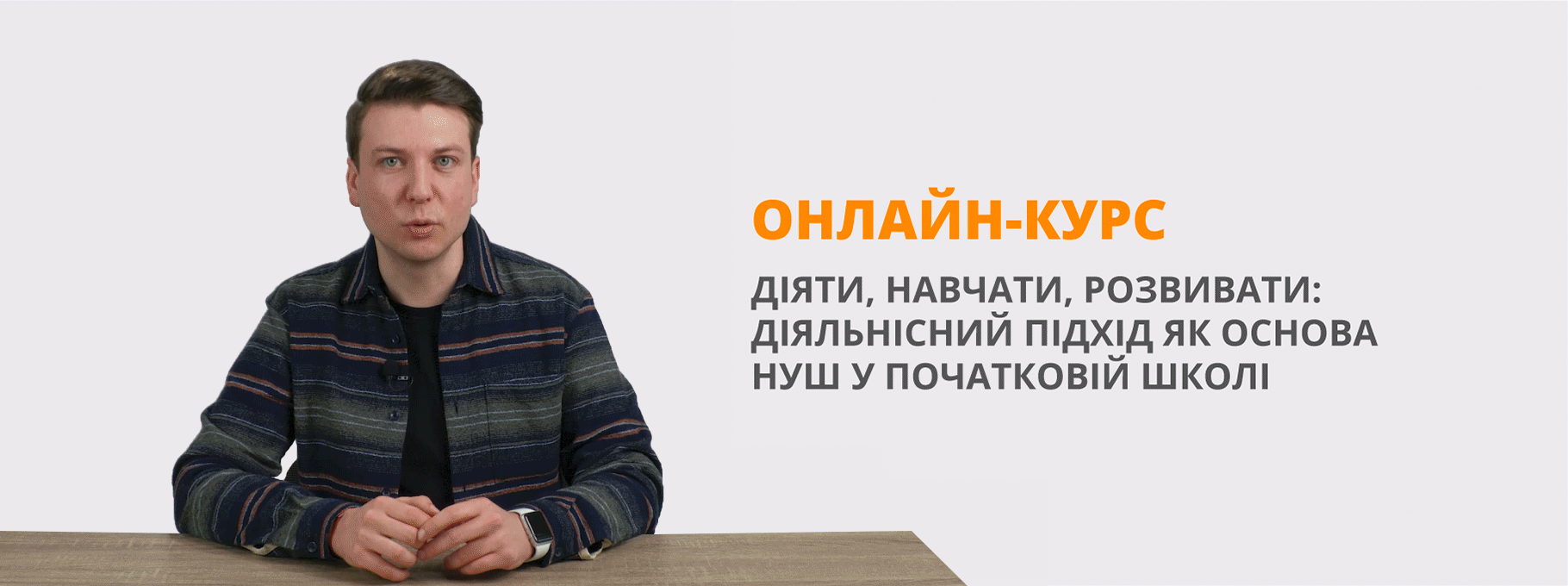«Nature. Environmental Problems. Conditionals.»
План-конспект уроку для учнів 7 класу з теми «Nature. Environmental Problems. Conditionals.»
Підручник: On Screen 2.
Topic: «Nature. Environmental Problems. Conditionals.»
Objectives:
Practical
● to introduce new topic vocabulary and practice it at the lesson
● to teach students how to form and use Conditionals on the material of the lesson
Developing:
● to develop students’ communicative skills using the topic vocabulary
● to develop students’ ability to work in groups and pairs
● to develop students’ listening, speaking and writing skills on the material of the lesson
Educational
● to broaden students’ knowledge about Environmental Problems we face today
Educative:
● to continue forming students’ careful attitude to Nature
Materials: Students’ Book On Screen 2, Grammar Way 2, computer, handouts
Procedure
Organization moment: greeting and introduction.
Today we are going to work on the topic «Nature. Environmental Problems. Conditionals.» I believe our lesson will raise your awareness about the problems that mankind faces today because of environmental issues. We are going to learn new vocabulary on the topic and how to form and use Conditional sentences.
Motivation:
At the end of the lesson you’ll be able to speak about environmental problems using new vocabulary, give your point of view on the subject, form and use Conditional sentences
I Warming up:
There is a quote: “Nature isn’t a place to visit. It is home .” How would you explain the meaning of this quote? Do you agree with it?
II Main body
- Reading. Learning new vocabulary.
do ex. 1a
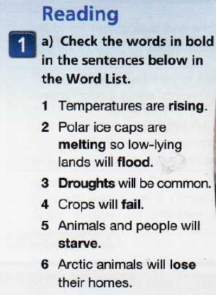
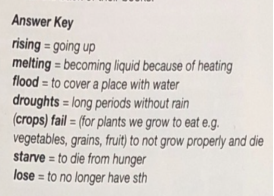
- Speaking
Discuss the question: “Which problem do you see as the biggest one?” in groups. Then give the results of the discussion using the following phrases:
- most of us think that … is the biggest problem
- one of us see … as the most difficult situation
- none of us believes that … can cause real danger for the environment
- Reading
- Read the text and match the headings (A-D) to the paragraphs (1-3) One heading is extra
A A difficult future B Animals in danger C What to do D The cause of the problems

- Reading for specific information.
Read the text again and find the answers for the questions:
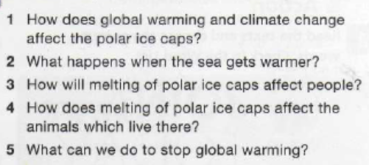
4. Practice new vocabulary.
- Match the words in bold to their synonyms in pairs:
look for, switch off, make less, very big, gone up, keep safe, sink and die
(Answers: look for - search, switch off- turn off, make less - reduce, very big - huge, gone up - risen, keep safe - save, sink and die - drown)
- Make up sentences with new words with your partner and write them down.
5. Grammar. Conditionals.
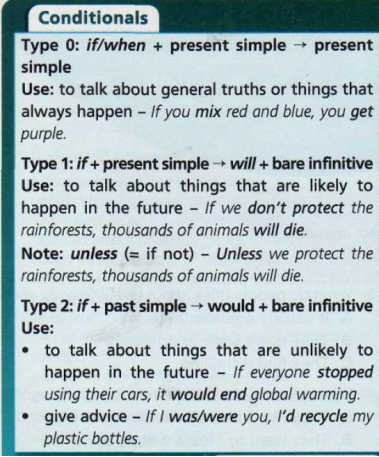
- Read the rules and answer the questions:
- What Conditional do we use to talk about things which are likely to happen in the future? How do we form it? Give the example of Conditional type 1
- What Conditional do we use to talk about general truths or things that always happen? How do we form it? Give the example of Conditional type 0
- What Conditional do we use to talk about things that are unlikely to happen in the future or to give advice? How do we form it? Give the example of Conditional type 2
2) Rewrite the sentences using
a) First Conditional :
1) If I (to tell) you a secret, you (to promise) to keep it?
2) If you (not to like) this one, I (to bring) you another.
3) She (not to open) the door if she (not to know) who it is.
4) My mother (to be) absolutely furious if she (to hear) about this.
5) If you (to put on) the kettle, I (to make) the tea.
b) Second Conditional :
1) If we (to have) more rain, our crops (to grow) faster.
2) If someone (to give) you a helicopter, what you (to do) with it?
3) You (not to have) so much trouble with your car if you (to have) it serviced regularly.
4) If he (to know) that it was dangerous, he (not to come).
5) I (not to drink) this cold milk if I (to be) you.
c) Zero Conditional:
- If we ( to heat) water, it (to boil).
- If we ( to add) sugar to a cup of coffee, it ( to taste) sweeter.
- Our skin (to turn) red if we (to lie) in the sun too long.
- If we (to throw) salt onto snow, it (to melt).
- You (to feel) healthier if you (to exercise) regularly.
3) Put the verbs in brackets into the correct tense.
- If I (be) you, I would exercise more.
- If we (not leave) now, we will be late.
- I will take a message for you if John (phone)
- He would tidy his room if he (have) more time.
- If the temperature (fall) below 0 C, water turns into ice.
4) Make up two sentences for Conditionals (0-2) with your partner and write them down.
IV. Summary and assessment
T: Our lesson is coming to an end. I’m really satisfied with your work at the lesson today. Your marks are…
V. Home task.
1 Learn new vocabulary
2 Learn the rules on how to form Conditionals (0-2) and when they are used.
3 Use the ideas from the text “On thin ice” and write a letter to your English speaking friend about environmental problems that mankind face nowadays.


про публікацію авторської розробки
Додати розробку
